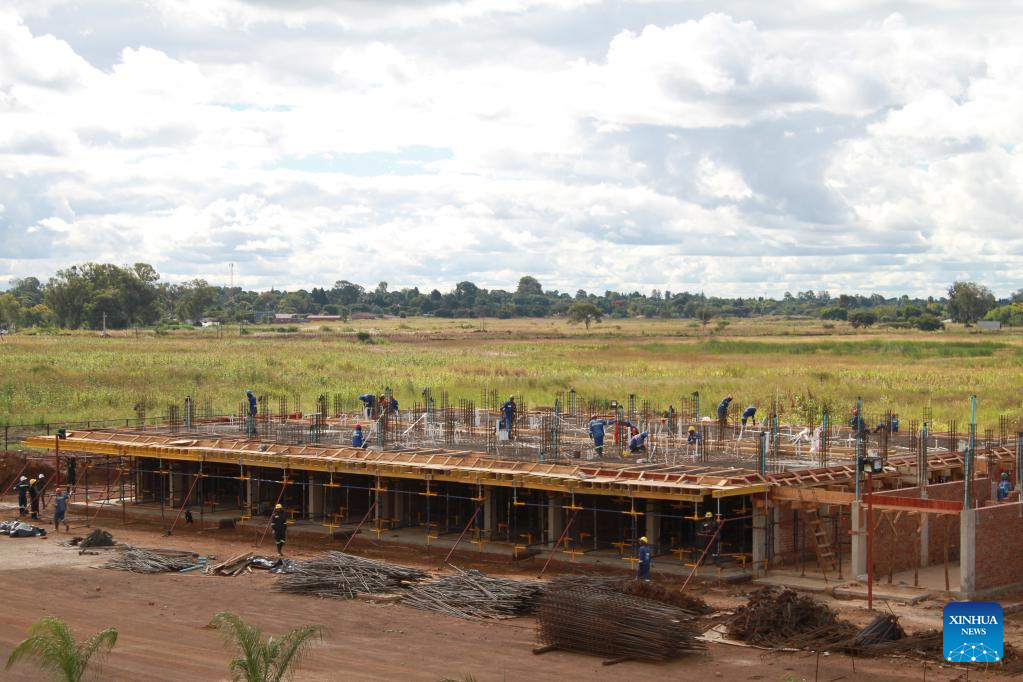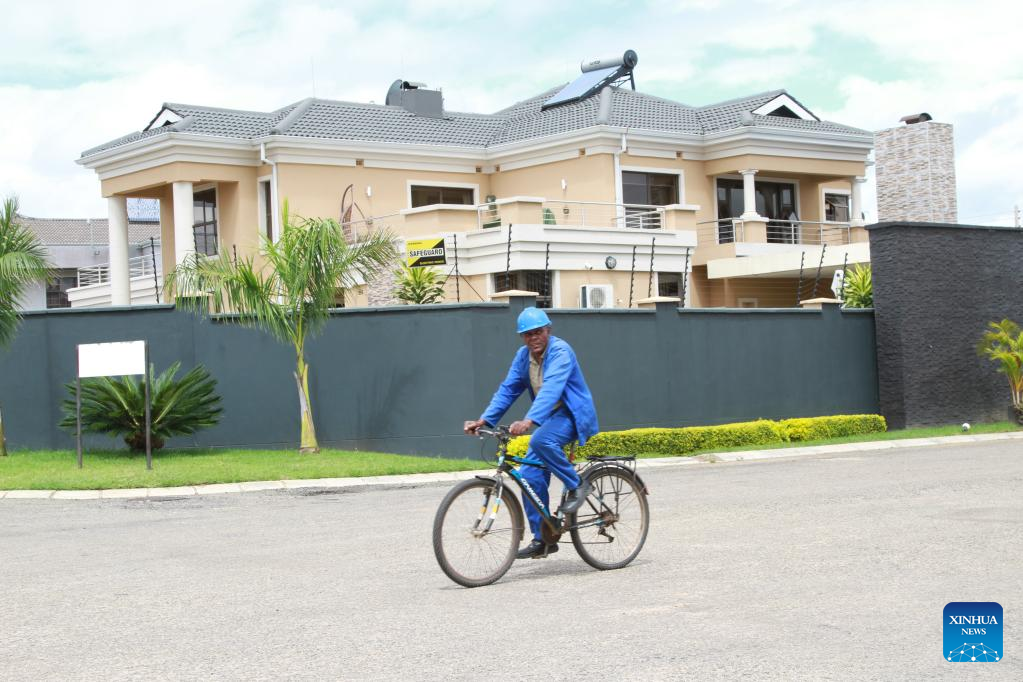
This photo taken on March 28, 2023 shows an apartment complex under construction in Borrowdale, an upmarket suburb north of Harare, Zimbabwe. (Xinhua/Tafara Mugwara)
by Tafara Mugwara
HARARE, April 21 (Xinhua) -- For most Zimbabweans, becoming a homeowner is the ultimate dream, as real estate is considered to be a key economic resource and a perfect hedge against inflation plaguing the nation, a trend that has led to a boom in construction in the southern African country.
"You find that there are people who continue to buy property, to build property as they get richer despite having four or five houses already because it's a sustainable store of value," said Harmony Mazai, an infrastructure vlogger and a property consultant with Property Channel, a real estate firm.
Despite the macroeconomic environment characterized by weak mortgage financing and high cost of debt, the appetite for high-end residential properties remains strong, according to Kenneth Sharpe, CEO of West Properties, one of Zimbabwe's major property developers.
"It surprises me that we are able to sell the number of properties in Zimbabwe. We have sold more than a thousand properties to date in the last few years. We are currently planning on selling 40 properties a month," Sharpe told Xinhua.
In Harare, the revival of old colonial suburbs is taking place through the construction of apartments and cluster houses. New neighborhoods are also sprouting up in the greater Harare region which boasts 38 percent of Zimbabwe's urban population, according to the 2022 national census.
According to the "Zimbabwe property market update" published in 2022 by Seeff Zimbabwe, a real estate company, the Zimbabwean diaspora makes up a notable portion of buyers, and those with an abundance of disposable income had flooded the market leading to a property shortage, and those which remain on the market are expensive.
The mismatch between the short supply of fully serviced land and strong demand has been key to the exorbitant property valuations, said Prosper Chitambara, an economist.
Echoing his opinion, Mazai said that the imbalance has seen local properties being pricey compared to other regional markets.
"If you look at the property market in the Southern African region, Zimbabwe has the most expensive property in terms of value for money, the reason being there isn't much financing coming into the property sector. People are self-financing, developers are self-financing," said Mazai.
"Because of that, our development is limited, so you then have a matrix of supply and demand whereby the demand exceeds the supply. If there is a boom, the supply is not sufficient to meet the demand, so you find that the properties here are very very expensive," he said.
Real estate has been a safe haven for investors during uncertain periods, as in the case of Zimbabwe where annual inflation in March stood at 87.6 percent, said economist Christopher Mugaga.
"It's just a haven to their last dollar knowing fully well that the other conventional asset like equities or the stock market is no longer reliable, so the only option to park your money is to invest in a private residence, and that's what has been happening," Mugaga told Xinhua.
While real estate has proved to be a safe haven for Zimbabweans who have had their savings wiped by hyperinflation, Chitambara said the local market is characterized by high costs of debt.
"U.S. dollar interests for example, are averaging about 15 to 18 percent, which is way higher than other countries in the region, and of course, Zimbabwean dollar interest rates are higher than that, but again most institutions are not offering mortgages in local currency, and very limited mortgages in U.S. dollar," Chitambara said.
An increase in demand for office and retail space has also been witnessed in Zimbabwe, said Gideon Nhamoinesu, development leasing manager for Terrace Africa Zimbabwe, a property development and asset management firm.
"There has been a rise in income and we see that in the turnovers in some of our shopping centers. I think as of last year there were 7 billion U.S. dollars spent in the retail sector," Nhamoinesu told Xinhua. ■

A man cycles past an upmarket housing development in Borrowdale, an upmarket suburb north of Harare, Zimbabwe, on March 28, 2023. (Xinhua/Tafara Mugwara)



